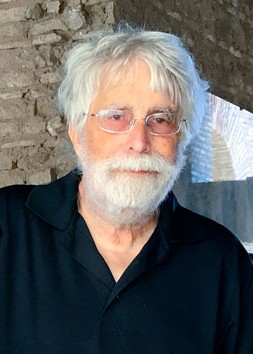Pioneering philosopher Richard Boyd dies at 78
By Linda B. Glaser
Richard Newell Boyd, the Susan Linn Sage Professor of Philosophy and Humane Letters Emeritus, died in his sleep in Cleveland, Ohio on Feb. 20. He was 78.
“Dick’s mind was powerful and his engagement with philosophy was nonstop. In discussion he combined greater penetration, quickness and fluency, along with breadth of knowledge and interests, than anyone else I’ve ever encountered,” said Carl Ginet, professor emeritus of philosophy in the College of Arts and Sciences.
Boyd, along with his colleagues Richard Miller and the late Nicholas Sturgeon, helped to establish Cornell as a center of research in ethics. He was a pioneer of contemporary scientific realism and its application to morality, a view known as Cornell Realism. In this view, moral properties are irreducible, and real features of the world and their reality are grounded in the success of moral explanations, much as the reality of the properties that physics invokes is grounded in the success of physical explanations.
Boyd was also influential in the development of an anti-reductionist sort of materialism, which argues that the entities and laws that figure into the various successful special sciences do not reduce to laws and entities in physics.
Beginning in the 1960s, Boyd was allied with Harvard’s Hilary Putnam on both scientific realism and anti-reductionism. “Today those positions have majority status in philosophy of science and philosophy of mind,” said Derk Pereboom, the Susan Linn Sage Professor of Philosophy and Ethics and A&S senior associate dean for arts and humanities.
The author of more than two dozen papers, Boyd was also interested in epistemology, philosophy of language, social and poltical philosophy – especially Marxism – and in the philosophy of biology. Most recently, discussions with his son Christopher, a chemist, identified enough overlapping interests that the two co-authored a paper on philosophy of chemistry, a topic in which they both became increasingly interested.
“Dick was a tremendous inspiration to students and colleagues ever since his arrival at Cornell. He was thoroughly enthusiastic about philosophy, and he was always ready to engage in a philosophical conversation and to explore new ideas,” Pereboom said.
Among the courses Boyd taught were a First-Year Writing Seminar on “Philosophy in Practice: Science and Pseudo-Science;” an interdisciplinary course on evolutionary psychology and ethics with Sturgeon; and a popular course on literary theory and philosophy with Satya Mohanty, professor of literatures in English (A&S). This course was the first at Cornell jointly taught by a literary theorist and an analytic philosopher.
“I found his work, especially his important essay ‘How to Be a Moral Realist,’ to be genuinely original and enabling, with a powerful vision for the human sciences in general,” Mohanty said, adding that conversations with Boyd “got me thinking in new ways, imagining new solutions to problems I had found fairly intractable within my own theoretical frame of reference. My best memories of my years at Cornell are linked to the conversations – and the arguments – he and I had. Dick loved to talk about things – ideas, politics, science, ethics – more than anyone else I know.”
Born May 19, 1942, Boyd received an S.B. in mathematics in 1963 and a Ph.D. in philosophy in 1970, both from the Massachusetts Institute of Technology. After teaching at Harvard, the University of Michigan and the University of California, Berkeley, he joined the Sage School faculty at Cornell in 1972. He was appointed the Susan Linn Sage Professor of Philosophy in 1981 and retired in 2017. After retiring, he taught at Lewis and Clark and Claremont Colleges.
Boyd is survived by his wife, Barbara Koslowski, professor emerita of human development in the College of Human Ecology, and their son, Christopher.
Linda B. Glaser is news and media relations manager for the College of Arts and Sciences.
Media Contact
Get Cornell news delivered right to your inbox.
Subscribe

